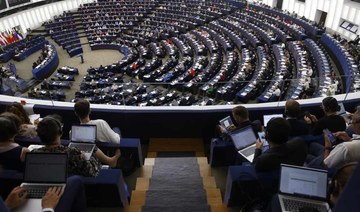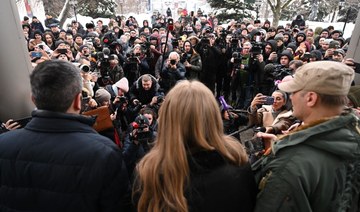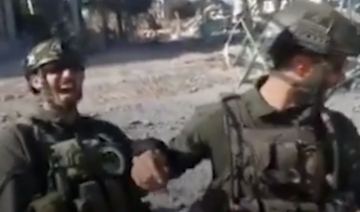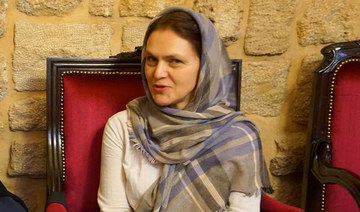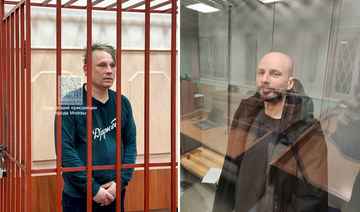CAIRO, Egypt: Tens of thousands of Algerians have rallied against their president’s bid for a fifth term in office, spurred on by social media which one observer says has helped “break the wall of fear.”
“No to a fifth term,” “civil disobedience” and “Algeria rises up” are just some of the popular hashtags urging Algerians to protest against ailing President Abdelaziz Bouteflika’s determination to seek re-election.
The 82-year-old leader has been in power for 20 years and has rarely been seen in public since suffering a stroke in 2013.
He went on to win polls the following year, but since then something has changed.
“The Internet has allowed Algerian youth to see what is happening in other countries culturally, economically, politically, as well as seeing younger presidents compared to theirs,” said Brahim Oumansour, a Paris-based researcher at the Institute of International and Strategic Relations (IRIS).
“All this serves to amplify the anger, disappointment and frustration of not reaching the achievements of other countries,” said Oumansour.
When protests began on February 22, young Algerians were not only calling for the president to go but also voicing their bitterness at a lack of opportunities.
The virtual space has helped “break the wall of fear,” Oumansour added.
Groups mobilizing people online include the Active Youth Collective, a network of activists founded in December which runs a Facebook page.
“Social networks play a very important role and the transmission of words can spread faster,” said Okba Bellabas, one of its 25 founding members.
Lawyers, journalists and students are all part of the group, which has members in Algeria and the diaspora.
Although Bellabas believes the Collective “cannot do without” social media, he noted regular in-person meetings also played an important part in cementing their presence on the ground.
While social media platforms are not banned in Algeria, there have been reports of Internet disruption in the capital and elsewhere during protests.
Well before the demonstrations began, the government in June cut the Internet nationwide in a series of pre-planned blackouts — to stop students cheating in their high school exams.
But Algerians have expressed surprise that despite their rallying cries online against the president, so far there have been no publicized arrests over their use of social media.
Across the continent in Sudan, meanwhile, protests against President Omar Al-Bashir’s rule have been met with sweeping new powers which criminalize publishing news “that hurts the citizens or the constitutional system.”
Sudan already has a dire reputation for media freedom — ranked 174th out of 180 countries on Reporters Without Borders’ press freedom index — although Algeria also comes in at a poor 136th place.
In Algiers, around 100 journalists held a protest on Thursday against what they deemed censorship of coverage of the demonstrations against Bouteflika.
A dozen of them were arrested but later released, according to a police official.
In Algeria, as elsewhere, the vital step has been to translate discontent aired online to the streets.
“The mobilization did not just stop at Facebook,” said Dalia Ghanem, a researcher at the Carnegie Middle East Center in Beirut.
“These are not anonymous Internet users. They are citizens who know that the only way to challenge those in power is precisely through organizing,” she added.
Amateur footage of the protests has been widely circulated on Twitter, Facebook or Instagram.
“Algerians know that their best weapons are non-violence and social networks,” said Ghanem.
Demonstrators in both Algeria and Sudan have received plenty of support online from disenchanted youth in the Arab world, particularly in Egypt where protests are effectively outlawed.
Last week a sole demonstrator was arrested in downtown Cairo after holding a poster with the words “El-Sisi, Leave,” according to human rights lawyers.
President Abdel Fattah El-Sisi has carried out a widespread crackdown on dissent in Egypt, where a law was adopted in 2018 to clamp down on social media.
But Egyptians living abroad are still able to voice their opinions online, including prominent blogger Hossam el-Hamalawy.
“Any Sudanese or Algerian who goes down against their rulers and asks for freedom, equality and social justice is closer to me than any pro-El-Sisi Egyptian,” he wrote Monday on Twitter.







